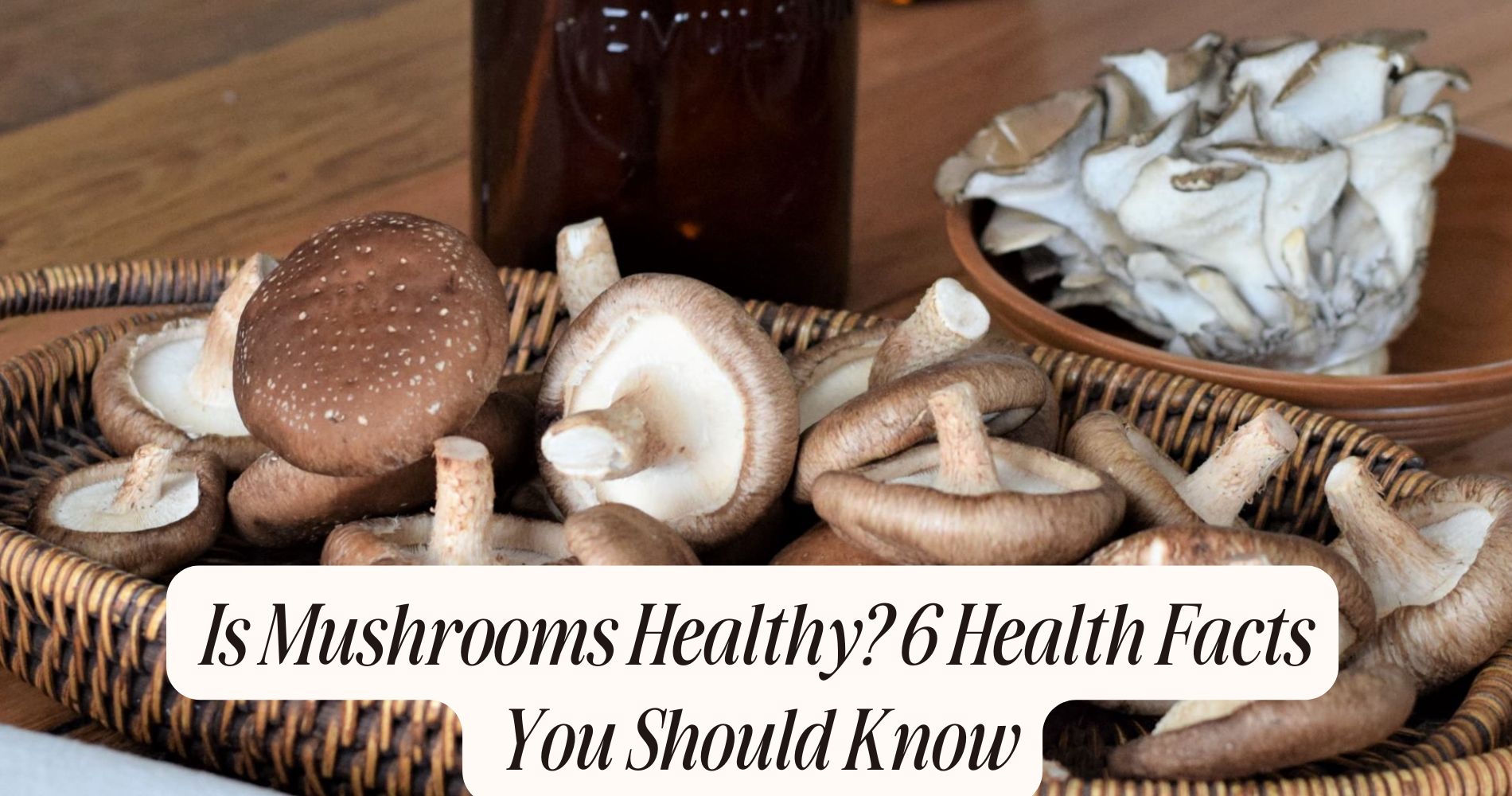
Another Name for Lion's Mane Mushroom and What It Does
Lion's Mane Mushroom, scientifically known as Hericium erinaceus, is widely praised for its brain and immune health benefits—but did you know another name for lion's mane mushroom is Yamabushitake? This powerhouse fungus supports nerve growth factor production, helping enhance memory, focus, and mental clarity. It also boosts immune function by reducing oxidative stress and activating key immune cells. With its distinctive flavor and meaty texture, it’s a standout ingredient in both health supplements and culinary creations. Read on to discover its full range of benefits and how to use it daily.
Overview of Lion's Mane Mushroom
Lion's Mane mushroom, scientifically known as Hericium erinaceus, is a unique fungus recognized for its distinctive appearance and potential health benefits. You’ll find this mushroom variety characterized by its long, white spines resembling a lion’s mane.
Its bioactive compounds, such as hericenones and erinacines, are believed to support cognitive function, enhance nerve growth, and provide antioxidant properties. Research indicates that Lion's Mane may help alleviate symptoms of anxiety and depression, making it a promising option in mental health support.

Additionally, this mushroom boasts anti-inflammatory properties that could benefit overall wellness. As you explore different mushroom varieties, consider incorporating Lion's Mane into your diet or supplementation regimen for its potential health-enhancing effects.
Alternative Names for Lion's Mane
Lion's Mane mushroom is known by several alternative names, including Hericium erinaceus and Yamabushitake.
These names reflect its cultural significance and various uses in traditional medicine, particularly in Asian countries.
Understanding these alternative names offers insights into the mushroom's historical context and application.
Common Alternative Names
Mushroom enthusiasts and health researchers often refer to Lion's Mane Mushroom by several alternative names that highlight its unique characteristics and benefits.
Known scientifically as Hericium erinaceus, this mushroom is also called “Monkey Head Mushroom” and “Bearded Tooth Fungus.” These alternative names stem from its distinctive appearance, resembling a lion's mane or the face of a monkey.
In mushroom terminology, it’s categorized in the tooth fungus group due to its spiky spore-bearing structures.
Additionally, some might know it as “Pom Pom Blanc” in culinary contexts, emphasizing its culinary appeal.
Understanding these alternative names can enhance your knowledge and appreciation of Lion's Mane, especially when exploring its potential health benefits and culinary uses.
Cultural Significance and Usage
The cultural significance of Lion's Mane Mushroom extends beyond its intriguing names. Various cultures have long recognized its value, integrating it into their cultural practices.
In traditional Chinese medicine, it’s celebrated for its purported cognitive benefits and is often used in herbal formulations. Historically, it’s been revered for its potential to enhance mental clarity and overall health, making it a staple in various folk remedies.
Additionally, its unique appearance has led to its use in culinary dishes and artistic representations, symbolizing nature’s bounty. Understanding these historical significances helps you appreciate Lion's Mane not just as a mushroom, but as an essential part of cultural heritage, embodying the connection between health, nature, and tradition.
Nutritional Profile of Lion's Mane
A fascinating aspect of Lion's Mane is its impressive nutritional profile, which offers a range of essential nutrients and bioactive compounds. This mushroom boasts high nutrient density, making it a valuable addition to your diet.
You'll find significant amounts of polysaccharides, particularly beta-glucans, which contribute to its health benefits. Additionally, Lion's Mane contains antioxidants, vitamins such as B1, B2, and D, and essential minerals like potassium and zinc.

These components not only support immune function but also promote overall well-being. The unique blend of nutrients can enhance your nutritional intake, helping you maintain a balanced diet.
Incorporating Lion's Mane into your meals can consequently provide you with a tasty way to boost your health and nutrient consumption.
Cognitive Benefits of Lion's Mane
Lion's Mane isn't just rich in nutrients; it also offers remarkable cognitive benefits that can enhance mental clarity and focus.
Research indicates that this mushroom supports cognitive enhancement by promoting nerve growth factor (NGF) synthesis, which is essential for neuron health and function. By stimulating the growth and maintenance of neurons, Lion's Mane may lead to significant memory improvement.
Regular consumption could improve your ability to retain information and process complex tasks more efficiently. Furthermore, some studies suggest that it might help alleviate symptoms of mild cognitive impairment, making it a valuable addition to your cognitive health regimen.
If you're looking to boost your mental performance, incorporating Lion's Mane into your diet could be a beneficial strategy.
Immune System Support
Lion's Mane mushroom is known to enhance your immune response, helping your body fend off infections and diseases more effectively.
Its rich antioxidant properties play an essential role in reducing oxidative stress, which can weaken your immune system.
Boosts Immune Response
While many factors contribute to a robust immune system, incorporating Lion's Mane mushroom into your diet can greatly enhance your immune response.
This unique fungus offers significant immune-boosting properties through its bioactive compounds, particularly polysaccharides and beta-glucans. These components stimulate the activity of immune cells, such as macrophages and natural killer cells, which play vital roles in defending your body against pathogens.
Additionally, Lion's Mane supports the production of cytokines, further enhancing your immune response. By regularly consuming this mushroom, you can harness its fungal benefits to improve your overall health.
Whether consumed as a supplement or in culinary dishes, Lion's Mane is a powerful ally in bolstering your immune system and promoting peak well-being.
Antioxidant Properties Explained
How can the antioxidant properties of Lion's Mane mushroom contribute to your immune system support?
The mushroom’s antioxidant mechanisms play an essential role in reducing oxidative stress, a condition linked to various health issues, including weakened immunity. By neutralizing free radicals, Lion's Mane helps protect your cells from damage, thereby bolstering your immune response.
This protection allows your body to function effectively, enhancing your ability to fend off infections and diseases. Additionally, the compounds found in Lion's Mane may stimulate the production of immune cells, further strengthening your body's defenses.
Incorporating this mushroom into your diet could provide a dual benefit: combating oxidative stress and supporting your immune system’s overall health.

Potential Anti-Inflammatory Properties
Research suggests that the anti-inflammatory properties of Lion's Mane mushroom may play an essential role in promoting overall health.
This mushroom contains several anti-inflammatory compounds, including hericenones and erinacines, which have shown potential in reducing inflammation throughout the body. By modulating the immune response, these compounds can help alleviate chronic inflammation, which is linked to various health issues.
Regular consumption of Lion's Mane may support inflammation reduction, leading to improved cognitive function and a lower risk of chronic diseases.
Moreover, studies indicate that these compounds may inhibit the production of pro-inflammatory cytokines, enhancing your body's ability to maintain balance.
Incorporating Lion's Mane into your diet could be a strategic move toward enhancing your health through its anti-inflammatory benefits.
Culinary Uses of Lion's Mane
Lion's Mane mushroom not only boasts impressive anti-inflammatory properties but also serves as a versatile ingredient in the kitchen. You can incorporate it into various culinary preparations, enhancing your dishes with its unique texture and flavor.
When cooked, Lion's Mane develops a delicate, seafood-like quality, often compared to crab or lobster. This makes it an excellent choice for soups, stir-fries, or as a meat substitute in vegan recipes. You can sauté it, grill it, or even use it in pasta dishes, allowing its flavor profiles to shine.
Additionally, it absorbs seasonings well, making it adaptable to different cuisines. Experimenting with Lion's Mane can elevate your meals while reaping its nutritional benefits.
Traditional Medicinal Uses
For centuries, traditional medicine has recognized the therapeutic potential of Lion's Mane mushroom. This fungus has been a staple in various traditional remedies, particularly in East Asian cultures. It’s known for its neuroprotective properties, often employed to enhance cognitive function and support nerve health.
You may find it used in herbal applications aimed at alleviating anxiety and depression, promoting mental clarity, and fostering overall well-being. Traditional practitioners often incorporate Lion's Mane into tinctures or teas, capitalizing on its bioactive compounds like hericenones and erinacines.
These compounds stimulate nerve growth factor (NGF) synthesis, which is vital for neuron maintenance and growth. By integrating Lion's Mane into your wellness routine, you could harness its ancient medicinal benefits for modern health challenges.

How to Incorporate Lion's Mane Into Your Diet
Incorporating Lion's Mane mushroom into your diet can be a straightforward yet effective way to harness its health benefits. You can start by trying various lion's mane recipes, such as sautéing fresh mushrooms with garlic and herbs, adding them to stir-fries, or incorporating them into soups.
For convenience, consider using dried lion's mane, which can be rehydrated and used similarly. If cooking isn't your preference, dietary supplements containing lion's mane extract are widely available in capsule or powder form. Just make sure you choose high-quality products from reputable sources.
No matter how you include it, integrating Lion's Mane into your daily routine can support cognitive function and overall well-being.
Easy Wellness with SUPER MUSHROOM GUMMIES
Curious about the power of mushrooms like lion’s mane? Get daily support the easy way with Well Gummies’ SUPER MUSHROOM GUMMIES. Packed with 10 potent mushroom types—including lion’s mane—these chewable, vegan gummies are your delicious shortcut to sharper focus, sustained energy, and immune balance. With a fresh wild berry taste and zero jitters or crash, they’re as enjoyable as your favorite candy. No prep, no mess—just natural fuel for a clear mind and vibrant body.
Frequently Asked Questions
Is Lion's Mane Mushroom Safe for Pregnant Women?
You should consult a healthcare professional about Lion's Mane safety during pregnancy. While Lion's Mane benefits are significant, it’s vital to take into account Lion's Mane precautions to guarantee both your and your baby's well-being.
Can Lion's Mane Mushroom Cause Allergic Reactions?
Yes, lion's mane mushroom can cause allergic reactions in some individuals. If you experience allergic symptoms like itching or swelling, you might have mushroom intolerance. It's best to consult a healthcare professional for guidance.
How Should Lion's Mane Be Stored?
To guarantee proper storage of lion's mane mushrooms, keep them in a cool, dry place, preferably in a paper bag. This method extends their shelf life, preventing moisture buildup and maintaining their quality.
What Are the Side Effects of Lion's Mane Mushroom?
When considering lion's mane mushroom, you should be aware of potential side effects like digestive discomfort or allergic reactions. Following dosage recommendations helps minimize risks while maximizing potential benefits for cognitive health and overall well-being.
Is Lion's Mane Mushroom Suitable for Children?
Lion’s mane mushroom isn’t typically recommended for children due to limited research on safety and appropriate dosage recommendations. If you’re considering it, consult a healthcare professional to discuss potential benefits and ascertain it’s suitable.
Conclusion
Incorporating lion's mane mushroom into your diet can offer various health benefits, from cognitive enhancement to immune support. Known also as Hericium erinaceus, this unique fungus provides essential nutrients and potential anti-inflammatory properties. Whether you enjoy it in culinary dishes or as a supplement, lion's mane can be a valuable addition to your wellness routine. Embracing its diverse applications can help you harness its full potential for both health and flavor.




